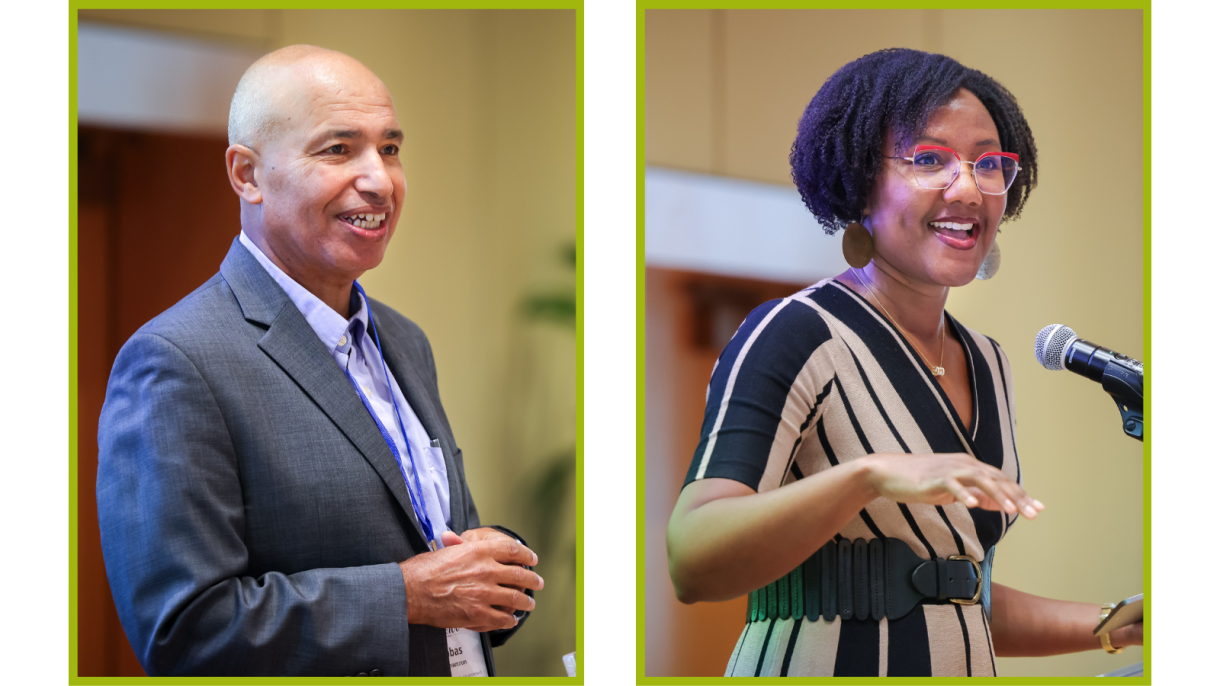
Duke Welcomes New Faculty with Focus on Collaboration, Wellness and Professional Growth
Duke University welcomed its newest faculty members during New Faculty Orientation, a day-long program designed to introduce new faculty to the university’s culture, resources and support systems. The orientation emphasized community building, professional development, university resources and the importance of personal wellness.
A Warm Welcome to Duke University

Abbas Benmamoun and Sherilynn Black set the tone by highlighting the university’s commitment to creating an inclusive and supportive environment for faculty success.
"For you to succeed at Duke, we have an obligation to provide you with an environment where you are highly valued and supported in a culture that is respectful of you as a member of our community.” – Abbas Benmamoun, Vice Provost for Faculty Advancement
New Faculty Introductions & Trivia Fun
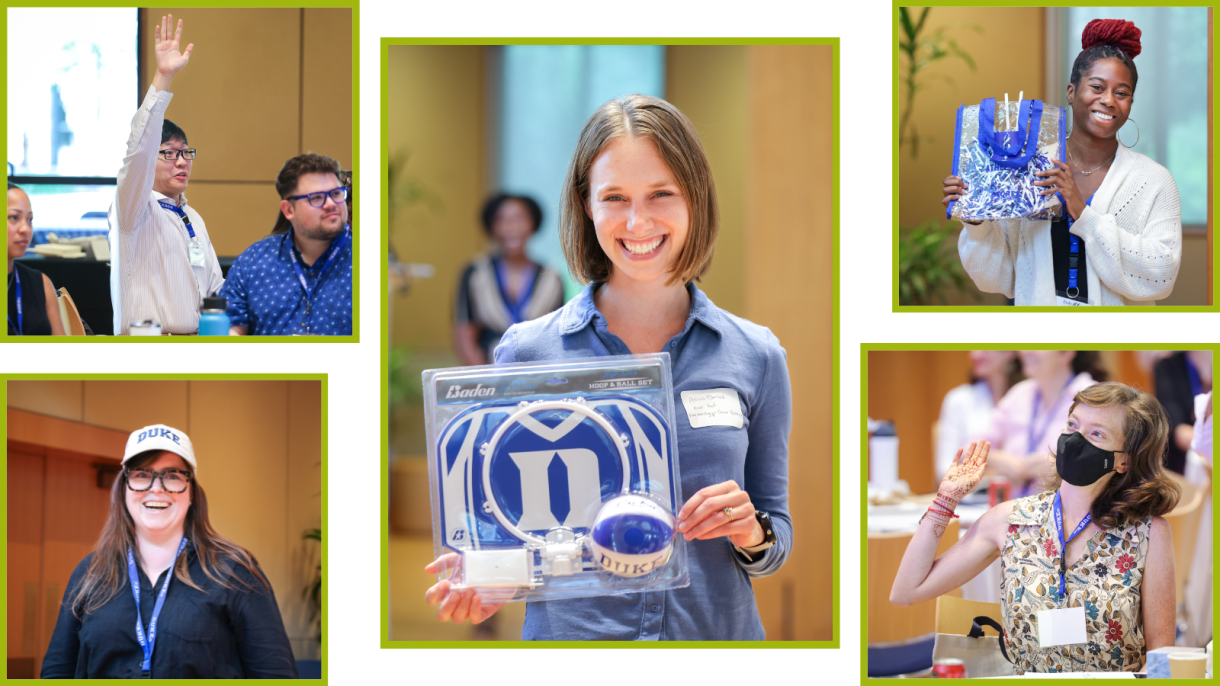
Throughout the event, new faculty members shared their excitement about joining the Duke community. From interdisciplinary research opportunities to collaborations across various departments, faculty expressed their eagerness to contribute to Duke’s dynamic academic environment. Adding to the festive atmosphere, trivia questions were sprinkled throughout the day with Duke-themed prizes. Our new faculty members were enthusiastic participants!
Professional Development & Personal Wellness
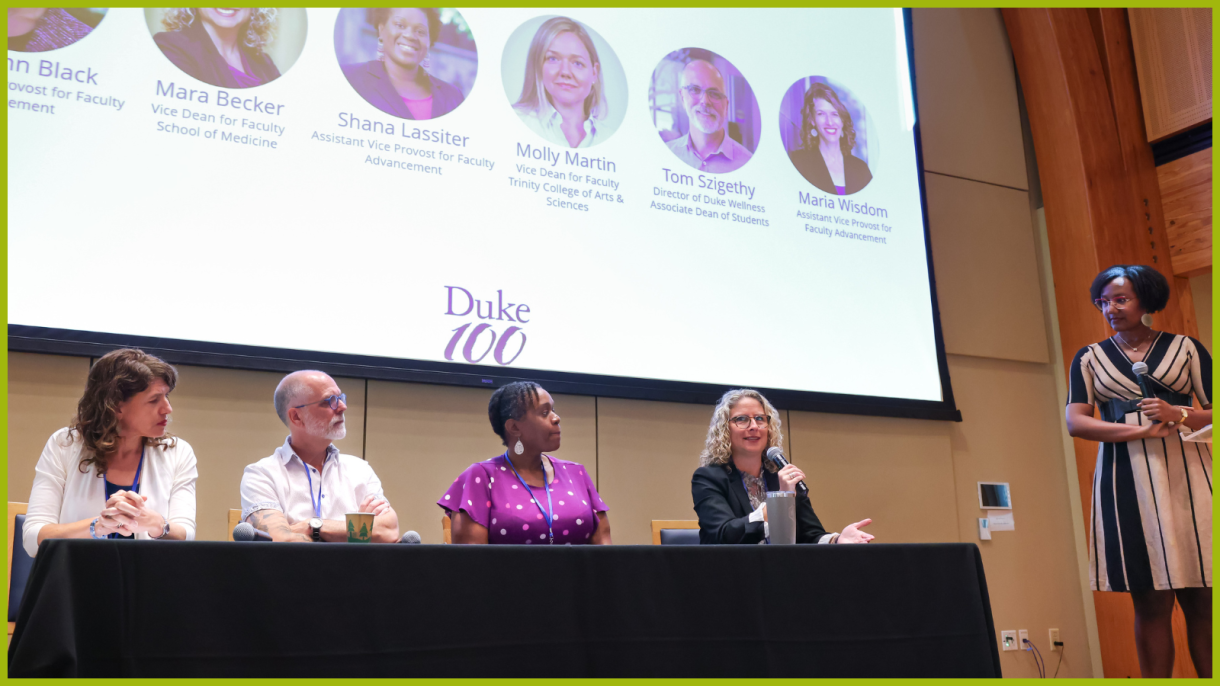
A central theme of the orientation was the importance of building and nurturing connections with colleagues and leaders. In a panel on professional development, Mara Becker, vice dean for faculty in the School of Medicine, advised new faculty to actively engage with their peers and mentors.
"Connect with people, meet your colleagues. It's those colleagues who are going to help you. Get to know your leaders... that will help you.” Mara Becker – Vice Dean for Faculty in the School of Medicine
Personal wellness was also highlighted as a priority, with panelists stressing the need for work-life balance. Faculty were introduced to resources such as Duke’s wellness programs by Tom Szigethy, the programs of the Office for Faculty Advancement by Shana Lassiter, and faculty coaching resources by Maria Wisdom.
A Brief History of Duke
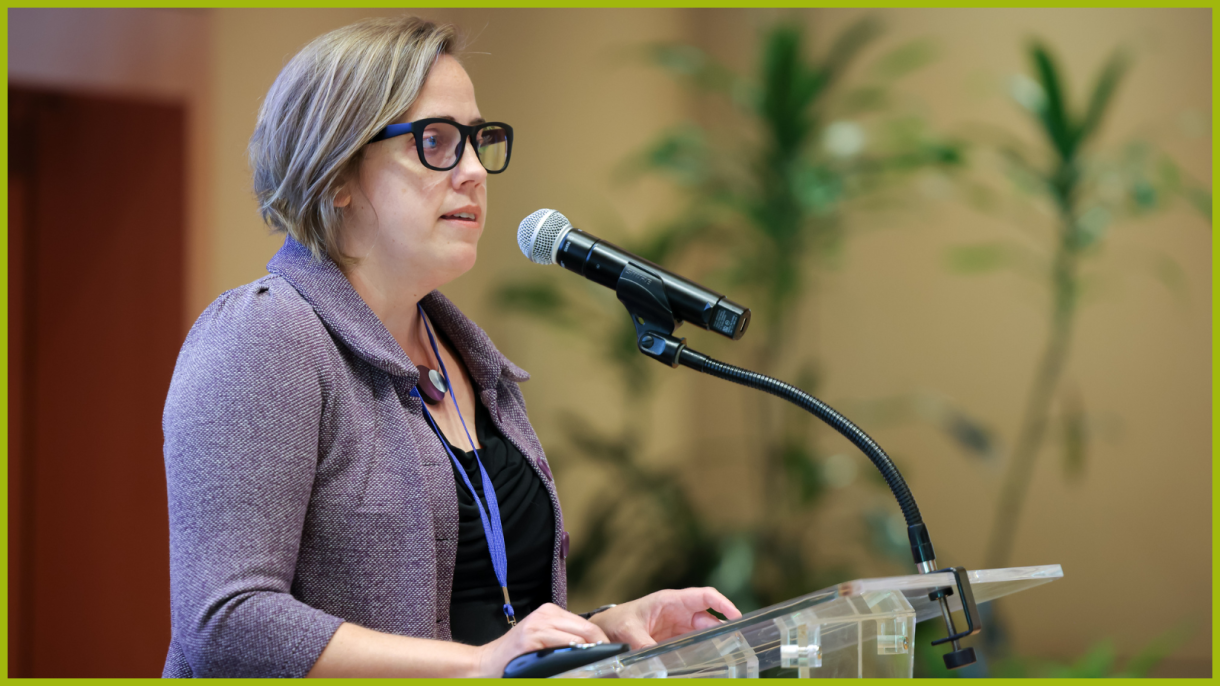
Valerie Gillispie, university archivist, provided a historical overview of Duke University, starting with its founding as Trinity College in 1838 Randolph County and into the modern-day Durham campuses.
Gillispie walked new faculty through a number of significant events that have shaped Duke’s history, including proclamations on the importance of academic freedom at the turn of the 20th century, the integration of the student body and the 1969 student protests. Key individuals in Duke’s history, including J.B. Duke, West Campus architect Julian Abele and Duke’s first Black faculty member Samuel DuBois Cook, also figured prominently in the discussion.
An introduction to the university’s special collections and a crash course on the famed Blue Devil rounded out the presentation, leaving attendees with a multifaceted view of Duke as their new community.
Introducing Faculty to the Arts & Athletics at Duke
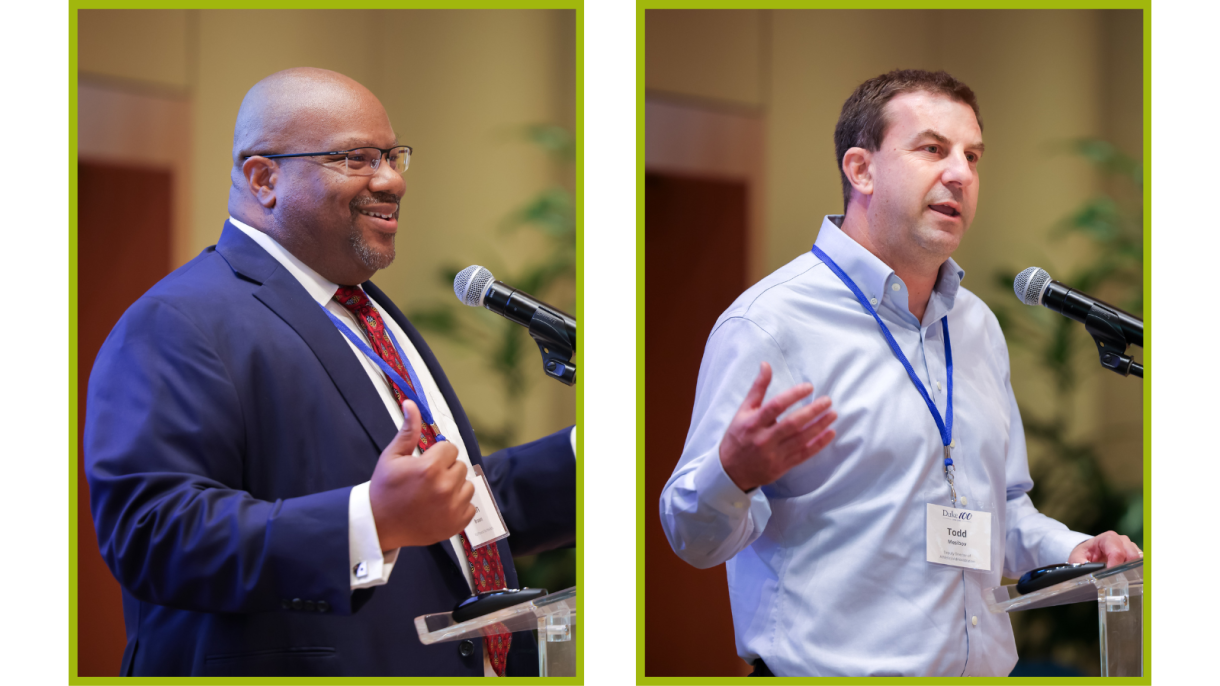
Keeping with the themes of work-life balance and engaging with the broader Duke and Durham communities, John Brown and Todd Mesibov outlined opportunities in the arts and athletics.
“We create opportunities to engage with art, opportunities to see, experience and even to make art.” – John Brown, Vice Provost for the Arts
Further describing Duke’s unique culture, Mesibov detailed the depth and breadth of Duke’s athletic programs and noted, “Athletics is woven into the university in a way that is fairly unusual and very special.”
The First-Year Faculty Experience
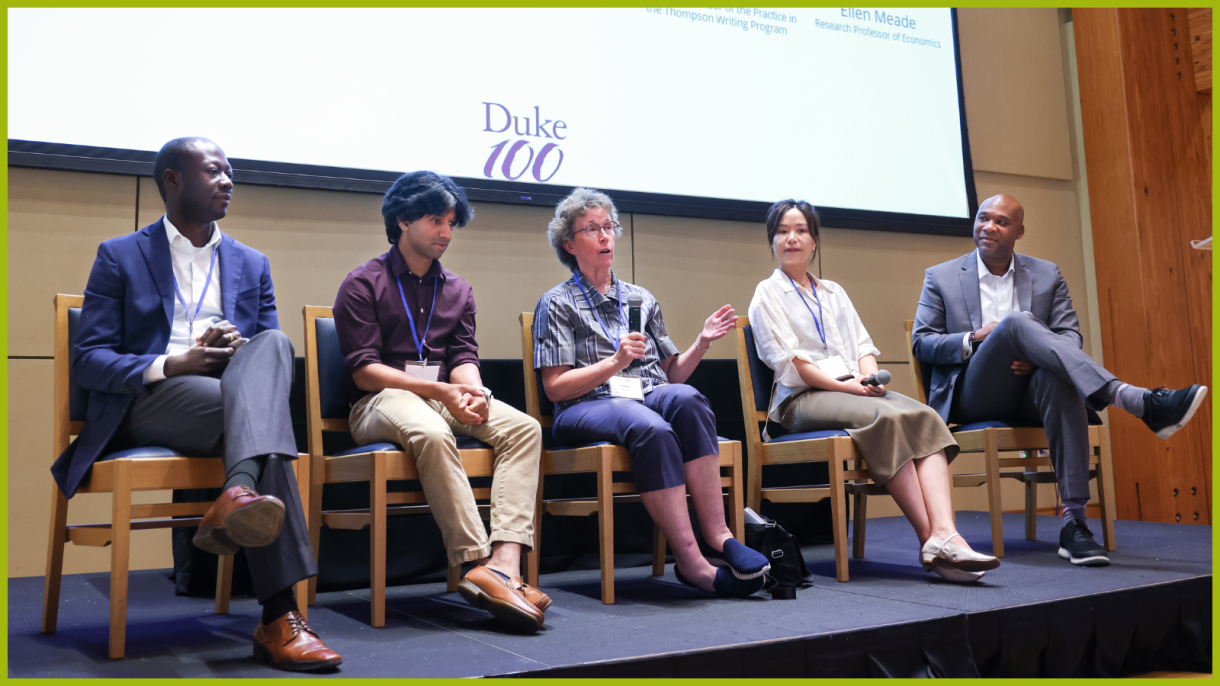
Panelists offered advice on managing the many demands of academia, reminding new faculty to prioritize what truly matters and to be kind to themselves.
“We have no shortage of things to which to say ‘yes’, but saying ‘yes’ to something is saying ‘no’ to something else," Smith noted, encouraging faculty to be intentional in their choices and to seek balance between their professional and personal lives. Ellen Meade acknowledged the steep learning curve of the first year, urging new faculty to "give yourself a break" and offering reassurance confidence builds over the course of the first year.
Pranam Chatterjee spoke to the warmth of the Duke community, encouraging faculty to put themselves out there and make connections. Divine Kumah, Yan Li, and Ellen Meade, all spoke to the ways that they have engaged with the broader Duke and Durham/Triangle communities, including new faculty lunches, attending sporting events, exploring the food scene and engaging in the fitness/recreation activities.
Panelists made special note of the kindness they have encountered at Duke and how phenomenal, fun and energizing it is to teach and engage with Duke students.
Engaging in Interdisciplinary Opportunities & Scholarship
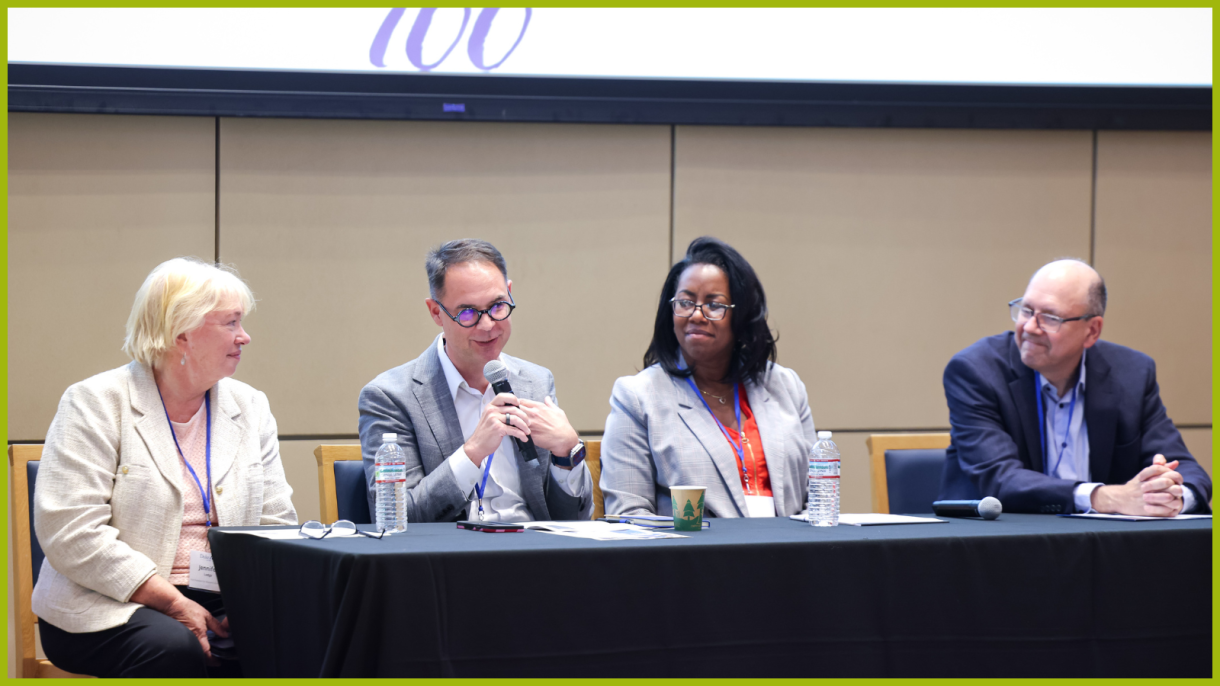
Duke prides itself on being an institution that nurtures innovation and collaboration. Session panelists highlighted Duke’s robust support for interdisciplinary work and community-engaged scholarship. Stelfanie Williams reinforced Duke’s commitment to community engagement, including a portfolio of programs that align with the university’s core vision. Ed Balleisen highlighted Duke’s substantial investments in interdisciplinary activities over the past 50 years. Joseph Salem underscored the library’s role in interdisciplinary support through research assistance, data management and access to archives, noting “the best libraries partner well and work across disciplines.” Jennifer Lodge discussed the resources available to help faculty navigate Duke’s complex research landscape, including research navigators and the myRESEARCHhome platform. The session connected back to the morning’s introductions, when several faculty shared their interests and expertise in both interdisciplinary work and community-engaged scholarship.
Living Duke Values
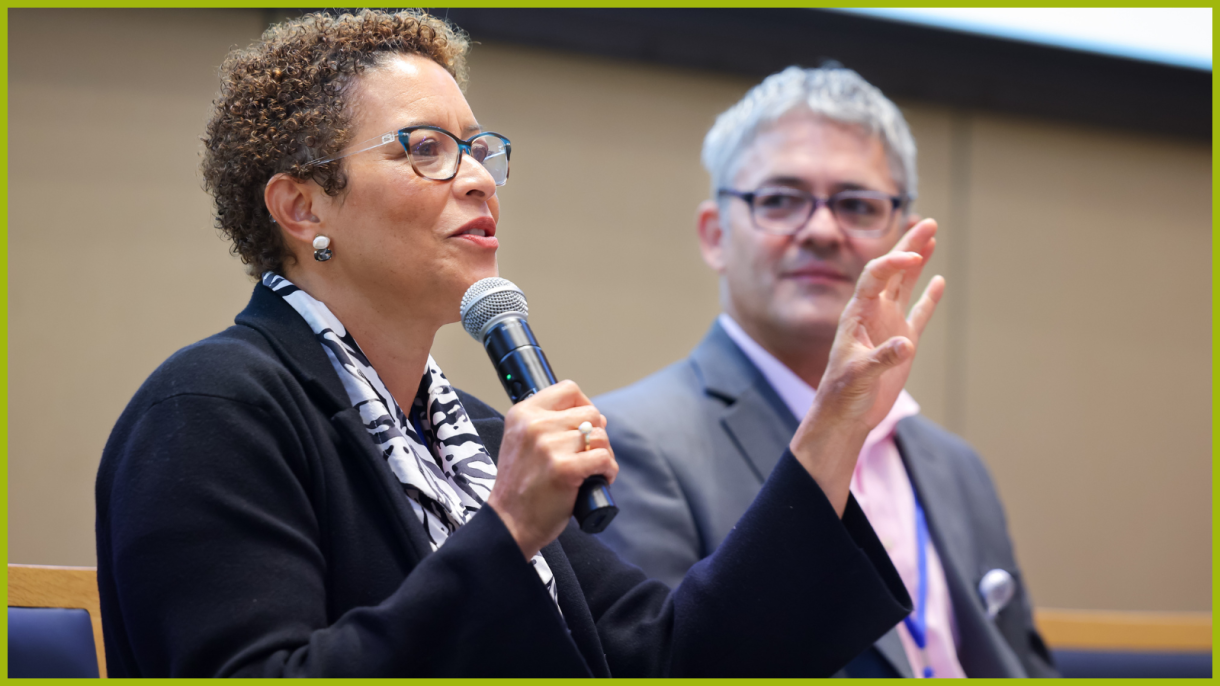
Kimberly Hewitt and Benjamin Smallheer led an interactive discussion of Duke’s shared values of respect, trust, inclusion, discovery and excellence. Hewitt and Smallheer modeled and then asked new faculty to participate in an activity highlighting the Duke values and reflecting on how to implement them in their professional lives. They emphasized the importance of considering the role of each value will play in a faculty career, and encouraged the new faculty to be intentional about engaging these values from the beginning of their time at Duke. The new faculty discussed which values they felt would be the most challenging to embody, and how they might overcome such challenges.
An Introduction of Duke Students
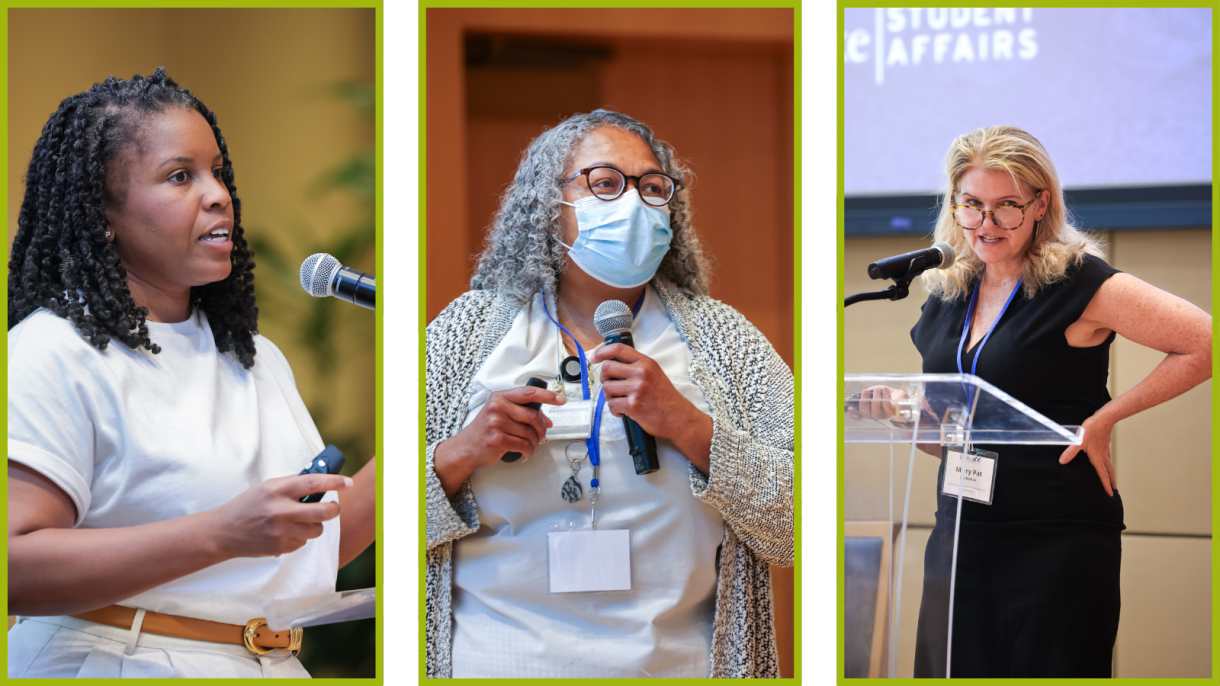
Leaders from Undergraduate Education, Graduate Education and Student Affairs shared their perspectives on the student experience and introduced faculty to many of the available student support services.
Candis Watts Smith outlined Undergraduate Education’s portfolio and mission, including their emphasis on enhancing skill building, learning environments and faculty-student engagement.
“Keep in mind as you’re engaging with students, encourage them to ask for help. Know that we have plenty of folks who you can send your students to.” – Candis Watts Smith, Interim Vice Provost for Undergraduate Education
Suzanne Barbour provided an overview of The Graduate School (TGS), including its relationship to Duke’s other schools and the demographic profile of the incoming class of students enrolled through TGS. Dean Barbour highlighted the infrastructure provided by TGS to support graduate students through the lifecycle of their programs, as well as the school’s commitment to a holistic model of education.
Mary Pat McMahon rounded out the presentations by speaking to the unique energy and atmosphere that define the Duke experience. She invited faculty to reflect on their idea of the typical Duke undergraduate student, and shared the actual demographic profile of the Duke student body as a point of information and comparison. McMahon closed by reiterating faculty have many partners to lean on, including the support offices within Student Affairs, when addressing student concerns.
Starting the Semester Strong
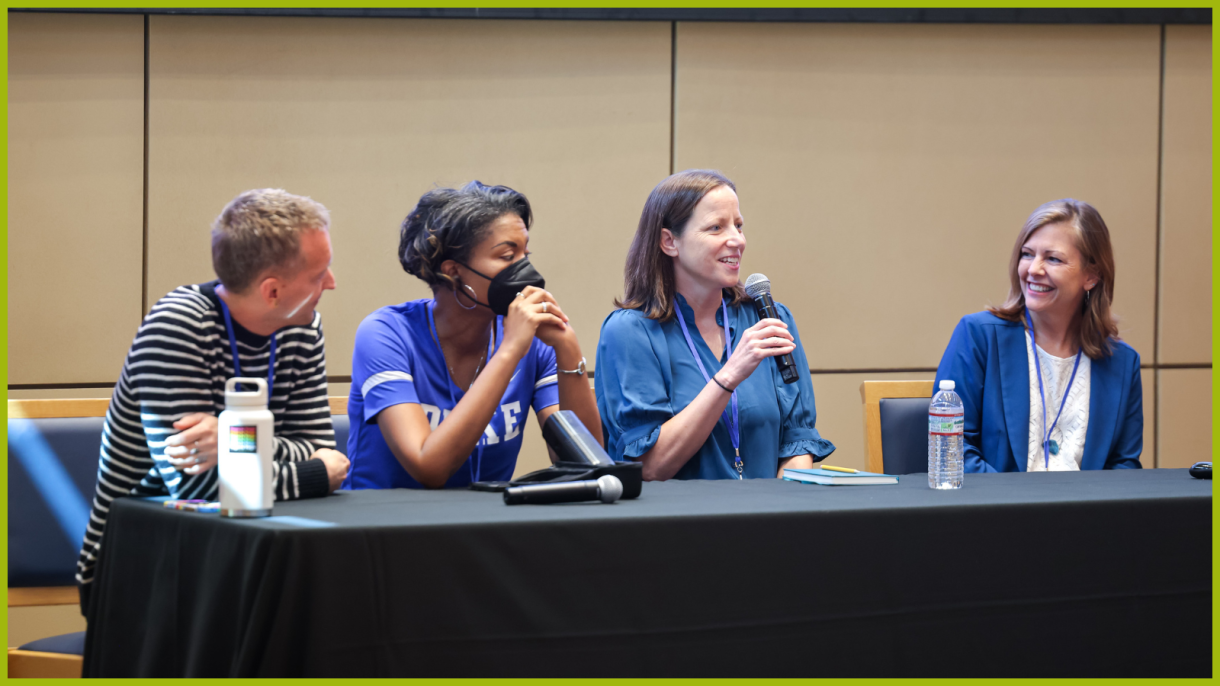
Panelists shared their insights on proactive and concrete ways faculty can create innovative and inclusive environments for learning and student engagement. Aria Chernik reflected on the joys and challenges of community-engaged teaching and project-based learning that provide transformative learning experiences for students but can be difficult to execute well.
"I show up as my most authentic self. I say to students I'm a facilitator. We're all contributing. We're all teaching." – Nicki Washington, Cue Family Professor of the Practice of Computer Science
This approach was echoed by Gregory Samanez-Larkin, who encouraged new faculty to embrace individuality, both for themselves and for their students. Deborah Reisinger urged faculty to get to know their students inside and outside of the classroom, noting a simple survey before class can help faculty to connect with students from the outset.
Panelists also highlighted the value of engaging all available resources, including communities of practice offered through Learning Innovation & Lifetime Education, fellow faculty (e.g., asking to sit in on one of a colleague’s class sessions) and opportunities to teach and engage students outside of the traditional class structure (e.g., Spring Breakthrough).
Advancement & Promotion at Duke
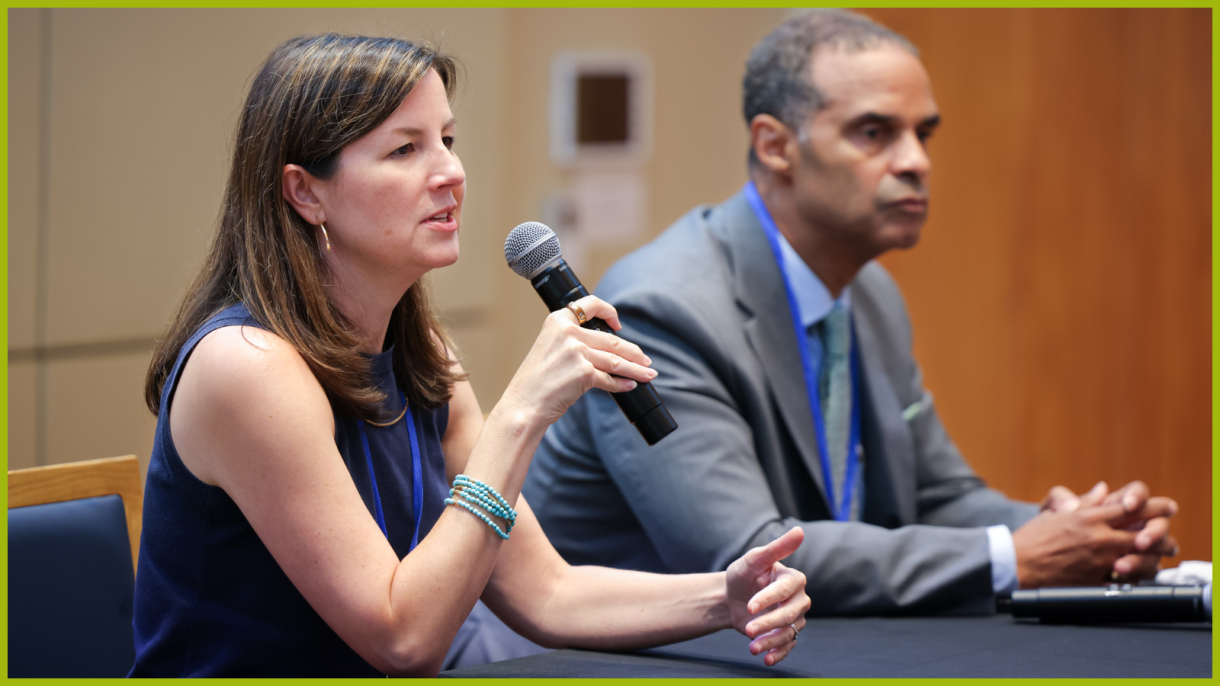
The session on advancement and promotion offered clarity and guidance as new tenure track and non-tenure track faculty consider their career trajectories. Abbas Benmamoun reassured attendees the university’s goal is for appointment, promotion and tenure to be a very transparent process. Faculty were encouraged to familiarize themselves with their department’s specific tenure and promotion standards, engage fully with the feedback mechanisms offered by their unit (e.g., mid-term review) and seize opportunities for developing mentoring networks.
Both Provost Alec Gallimore and Staci Bilbo urged faculty to focus on their strengths and build a solid foundation in their early years at Duke, which will help to set faculty up for success in later years. Bilbo noted each of the new faculty were hired because for their excellence.
Pace and the importance of being strategic emerged as common themes, with panelists noting the importance of steady, sustained scholarly activity. Provost Gallimore advised junior faculty members to be as thoughtful and proactive as possible when considering service commitments, aligning service with their other professional interests and goals whenever possible.
Benmamoun closed the session by inviting faculty to engage in the upcoming Faculty Advancement and Success (FAS) workshops that will dive more deeply into the advancement, promotion and tenure processes for tenure track and non-tenure track faculty.
Coming to a Close
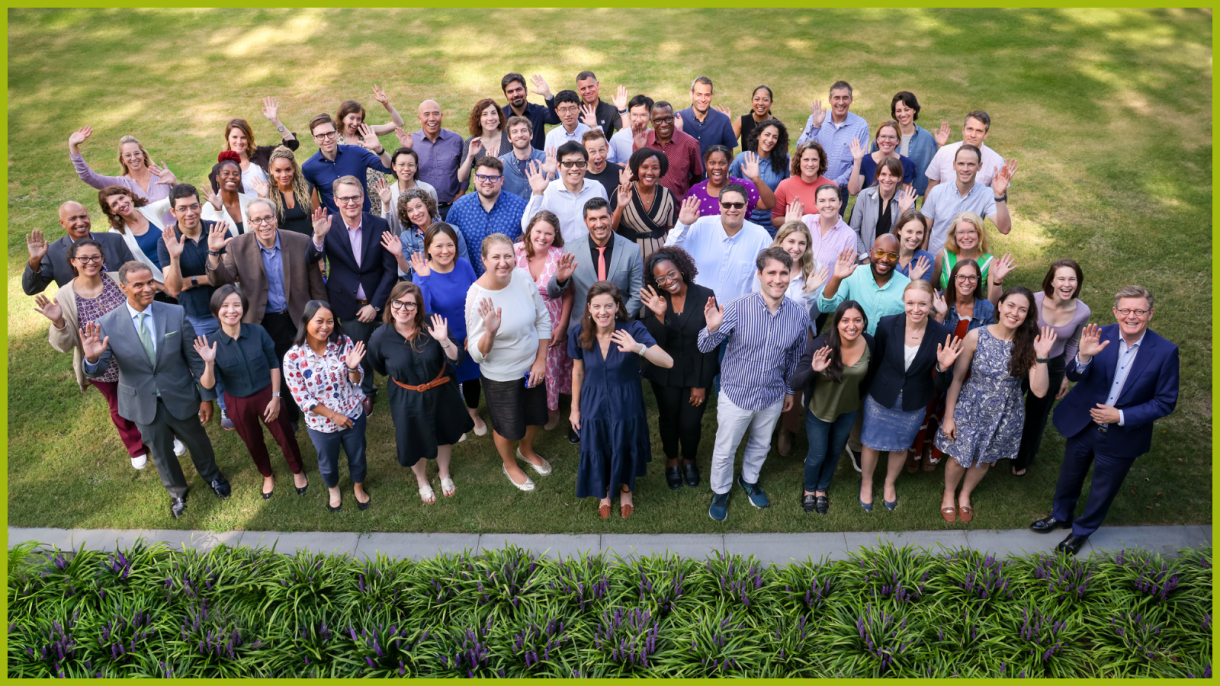
The orientation concluded with remarks from Provost Alec Gallimore, followed by a group photo and a reception with President Vincent Price. Gallimore praised the intelligence, creativity and collegiality of Duke’s faculty, and invited the new members to embrace the opportunities and challenges ahead.
“Duke is always richer because you are here.” �– Alec Gallimore, Provost and Alfred J. Hooks E '68 Distinguished Professor
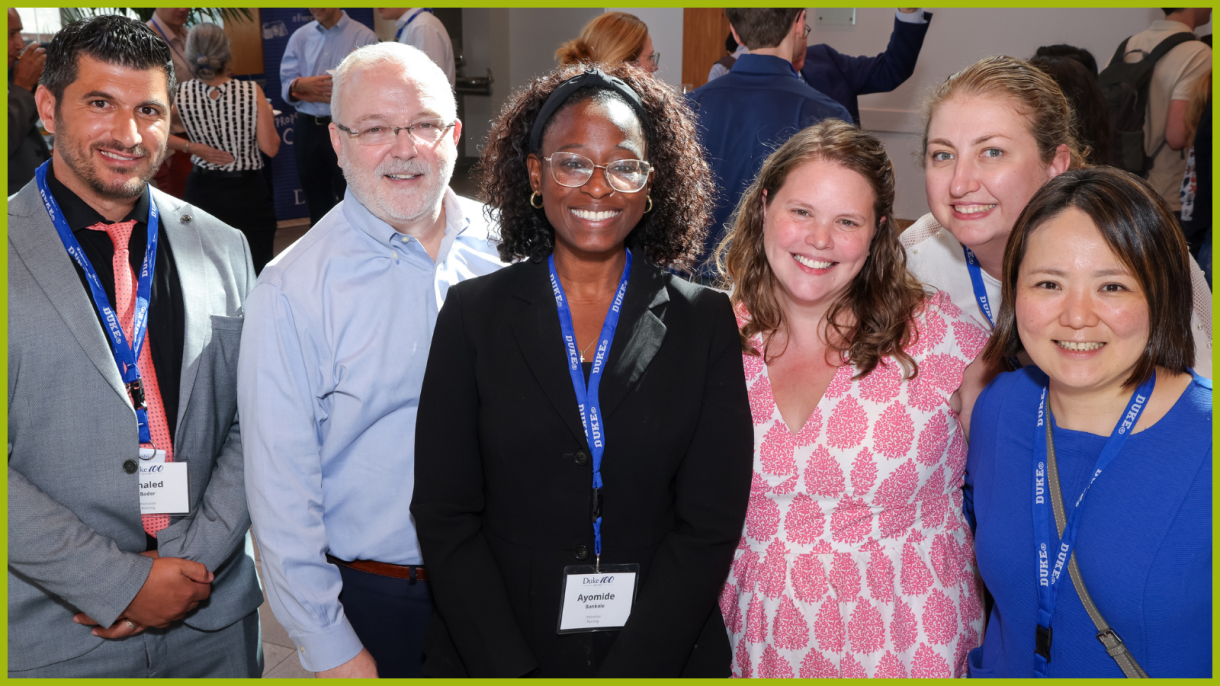
Learn more about faculty development programs and resources supported through the Office for Faculty Advancement.
Faculty Advancement & Success (FAS) Workshop Series
Faculty and Academic Leadership Coaching


